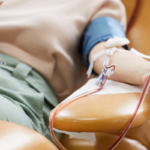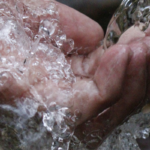First and foremost, blood donations are critical to saving lives. Every year, thousands of people in South Africa require blood transfusions due to various medical conditions or emergencies. Without donors, there simply wouldn’t be enough blood to meet the demand, and lives could be lost. By becoming a blood donor, you have the power to directly impact and even save someone’s life.
Secondly, donating blood is a relatively simple and easy process. It only takes about 30 minutes to an hour to complete the entire process, including the screening and donation itself. Plus, donating blood is completely safe, as all needles and equipment are sterile and single-use only. So, if you’re looking for a way to make a difference in your community that won’t take up too much time or energy, becoming a blood donor is a great option.
Another benefit of being a blood donor is the positive impact it can have on your own health. Donating blood can help reduce the risk of heart disease, stroke, and other health problems, as it helps to reduce excess iron in the blood. Additionally, every time you donate blood, you receive a mini check-up, including a blood pressure and hemoglobin level test, which can help you monitor your own health.
Lastly, being a blood donor is a great way to give back and show your support for your community. When you donate blood, you’re providing a vital resource that can help others in need. It’s a simple act of kindness that can have a huge impact on someone’s life. Plus, donating blood can be a great way to meet new people and connect with others who are also passionate about making a difference.
So, there you have it! These are just a few of the many reasons why being a blood donor is so important in South Africa. If you’re interested in becoming a donor, simply contact your nearest blood donation center or hospital to find out more about the process. Remember, every donation counts and can make a huge difference in someone’s life.
🩸Who can donate blood? Here’s an eligibility checklist for potential donors:
🩸 Why are South Africans not donating blood?
SAVE A LIFE & DONATE BLOOD.

Winter Safety Guide
Winter’s arrival brings with it a desire to snuggle up and stay warm in the comfort of our homes. Fireplaces, gas and electrical blankets, heaters, and hot water bottles become our trusted companions during these chilly months. However, it’s crucial to prioritize safety to prevent potential accidents or hazards. In

Sudden Infant Death Syndrome (SIDS)
Sudden Infant Death Syndrome, or SIDS, is a heartbreaking tragedy that affects thousands of families each year. As a parent, the thought of losing your child to SIDS can be overwhelming and scary. But there are steps you can take to reduce the risk of SIDS and be prepared for

World Blood Donor Day 2023: “Give blood and keep the World beating”
Did you know that blood donation is one of the most selfless and impactful things you can do for your community? It’s true! And in South Africa, the need for blood donors is always high. That’s why today, I want to share with you some of the many reasons why

First Aid for Burns – a must read for every parent
Sister Catherine Rodwell sheds light on the right way to handle burns, be it in children or adults. It’s crucial to be aware of the proper procedure to not worsen the burn’s impact. From 6-12 May, National Burns Awareness Week is being observed. In continuation of our conversation with “Mommy

A mother recounts her traumatic experience
We are very grateful for this mommy who wanted to share her traumatic story with us, so that other parents can learn how quickly accidents can happen. Please note that photo’s can be triggering. We are very grateful for this mommy who wanted to share her traumatic story with us,

The Leading Cause of Accidental Poisoning
As parents or caregivers, keeping children safe is our top priority. However, despite our best efforts, accidents can happen. One of the most common accidents that can be prevented is unintentional poisoning from medication. It’s important to understand that medicines are not sweets and should be treated with care. In

Head Injuries in Children
The World Head Injury Awareness Day falls on March 20th every year and it looks at the number of people who suffer from a mild bump on their head to severe brain injury. The purpose of this day is to remind us of how we could reduce accidents and brain

Top tips for staying healthy
Here are some tips for parents to help keep their children healthy during the colder seasons. Practice good hygiene: Encourage your children to wash their hands frequently and cover their mouths when coughing or sneezing. This can help prevent the spread of germs and illnesses. Dress appropriately for the weather:

How CPR saves lives
Knowing CPR can save someone’s life, our trauma expert, owner and founder of Survival CPR, Sister Catherine Rodwell, explains what CPR is, who can do and why it is so important that anyone (especially those in any caregiving role such as a parent or nanny) should take a course and keep


